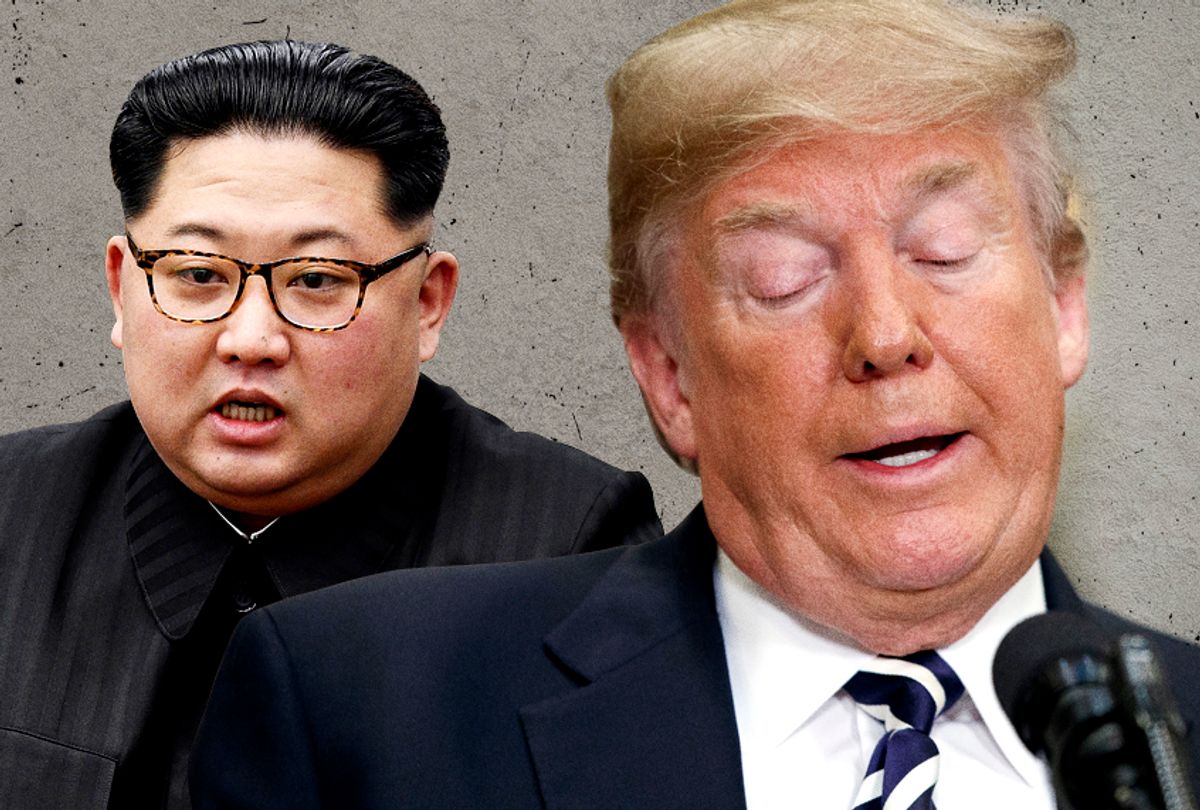On Jan. 31 this year, I shared a meal with Jung Gwang-Il, a North Korean defector turned activist, in the Canadian city of Halifax.
Jung travelled to Dalhousie University to share his horrific story of imprisonment and escape from a North Korean prison camp. That evening, as the State of the Union address in the United States played on television, Jung’s phone was alight.
It was the White House calling.
Jung was invited, along with seven other North Korean defectors, to meet President Donald Trump on Feb. 2. The others included Ji Seong-ho, praised by Trump in the State of the Union address, and Hyeonseo Lee, whose story became a New York Times bestseller.
As he met with the defectors, Trump said, in his inimitable vernacular, North Korea “is a tough place to live, and people aren’t liking it.” The defectors told their stories of abuse, famine and torture, horrifying narratives that amounted to Orwellian nightmares. But Trump had little to say. He shrunk into his famous dismissive slump that screamed of boredom.
Trump smiled at Kim, shook his hand with enthusiasm, patted him on his back, and fawned over him with compliments, concerned with how “thin” he looked. He showed Kim an utterly bizarre propaganda video, produced with the air of a low-rent public safety video, selling Kim on the benefits of a nuclear-free Korean peninsula.
Dreaming of building hotels?
After an in-camera meeting, the pair resurfaced, supposedly confident that North Korea’s nuclear program would be a thing of the past. Trump even said how great it would be to build hotels on North Korean beaches. But not once did he mention human rights abuses.
Some North Korean defectors wept seeing Trump chumming up to Kim. Others were devastated that the president went as far as saluting a North Korean general of a military accused of bone-crushing torture and public executions.
How could someone invite victims of abuse to their home, and later praise their abusers?
The answer lies in the hyper-narcissism that Trump exudes, a dangerous mental disorder that is now shaping U.S. global relations. It can be best described as “Casino Diplomacy.”
According to Michael Wolff, author of Fire and Fury, when Trump took a billionaire and a fashion model on a tour of his Atlantic City casino, the billionaire “assured the model that there was nothing to recommend in Atlantic City. It was overrun by white trash.”
Diplomacy as a game of blackjack
Any punter in a casino knows that the odds are against him. The house always wins. Yet gamblers continue into the labyrinth, at risk of losing it all, but confident that they still have a chance to win it all.
Problem gamblers, those suffering from ludomania or pathological gambling, can exhibit various psychological mechanisms, in particular narcissism and impulsiveness, despite harmful consequences.
This is Trump. He is unmoved by high risks and wild odds through a feeling that his sheer cunning will always win, including, now, in the geopolitical sphere — his latest casino.
Trump views opponents like a game of blackjack. Charm the dealer, like Kim, make strong bets like denuclearization, push them as close to a 21 as possible, and hope they bust.
For America’s allies, it’s a crapshoot. And Trump holds the dice. Many people have interests on the table, the odds are high, from four per cent NATO commitments to tariff wars; Trump just rolls the dice. If it all comes up snake eyes? He rolls again.
Forget what advisers may say, forget the emotional trust of North Korean defectors, forget it all. Go until the house folds.
‘Hapless punter’
Difficult as it is to predict the long-term consequences of Trump’s bellicose personality on global stability, be it with NATO or Russia or North Korea, his beloved game of Casino Diplomacy provides insight.
Much like a problem gambler, Trump engages the world stage through narcissistic risk-taking. His opponents understand this. What then can American allies do to mitigate this harmful behaviour?
Problem gamblers often benefit through support that builds confidence for the capacity to change. Is this possible for Trump, or is it simply too late?
Donald Trump is a hapless punter in over his head, putting all of his chips on the table hoping that the dealer busts. As with any problem gambler, he’s creating a wealth of harm, but on a global stage —from robbing the trust of North Korean defectors to destabilizing the global economy.
Trump’s Casino Diplomacy, therefore, is no game. It’s a serious illness that will continue to profoundly harm people and nations around the world.
Robert Huish, Associate Professor in International Development Studies, Dalhousie University



Shares